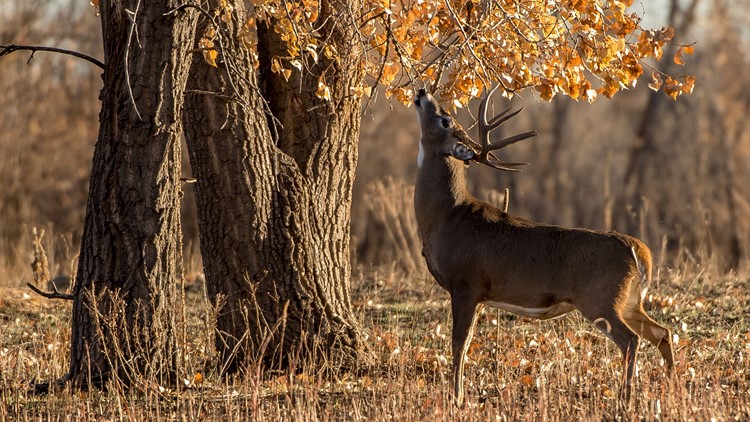ST PAUL, Minn. — The Minnesota Department of Natural Resources has issued an emergency 30-day order banning the movement of farmed whitetail deer in the state, while it investigates the discovery of Chronic Wasting Disease (CWD) on a farm in Douglas County.
DNR commissioner Sarah Strommen said the goal of the temporary moratorium is to help control and contain the spread of CWD, while giving the state time to evaluate the Douglas County cases and come up with solutions.
In a conference call with the media on Monday the DNR said the Douglas County farm has connections to other farms, and needs to determine if any deer moved through that facility to other parts of the state.
Commissioner Strommen said to her knowledge, this type of action hasn't been taken before by the DNR, but she believes it's time for a different approach.
"It's become apparent that addressing this farm by farm, positive deer by positive deer simply isn't working," Strommen said.
Following the initial 30-day moratorium, the DNR will evaluate to decide if any additional action is necessary.
CWD was first detected in Minnesota in 2002. Since then, the DNR has tested more than 90,000 wild deer. The agency said 73 wild deer have been confirmed positive for the disease in Minnesota so far, mostly in southeastern Minnesota. It's caused by a prion, an abnormally shaped protein that can persist in the environment for years.
DNR experts consider deer farms to be a potential reservoir of infection that can spread the disease to wild deer. A now-closed infected deer farm in central Minnesota's Crow Wing County was the suspected source of the disease detected last winter in a wild deer in the area.
The Minnesota Board of Animal Health, which regulates deer farms, announced earlier this month that one of the two deer at the Douglas County farm, an 8-year-old white-tailed doe, tested positive after the other deer on the farm killed it. The buck was euthanized after the results came back.



